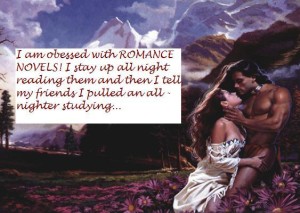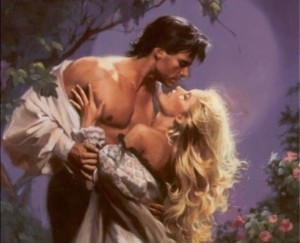It took me a long time to come out of the Romance closet. Plenty of negative connotations surround the romance genre, which hover like a cloud of mosquitos on a balmy summer night, constantly ready to bite. At least, that’s how it felt to me. From my earliest days as a writer of romance, I felt obliged to keep my passion a secret.
I was afraid of someone belitting my dreams. Afraid of them mocking the only desire that had ever consumed me as a bone-rattling, lifelong passion. It’s not easy to put that sort of thing in the hands of others. Especially as a young writer, so impressionable and sensitive to the reactions of others. My saving grace was that one of my best friends wrote similar material. With her, I could share my words without fear, and know that it wasn’t so strange to be writing this stuff.
Nowadays, I do tell people what I do — and with pride! As a friend once told me, “this is just one more piece of the puzzle that makes you a fascinating person”. I had never thought to look at it that way before — something that adds to my overall interesting quotient as opposed to muddying it. But it wasn’t a straight shot from the shadows to the light. When I first started telling people what I wrote — after all, saying “I’m a writer” always begs the question, “Well, what do you write?” — I found myself disclaiming it. Downgrading my own passion before anyone else had a chance to. Sure, I admitted that I wrote romance, but I was also quick to mention all the other things I was writing. All the other ways that I qualified as a real writer.
The article “In Defense of Romance: Proving the stereotypes wrong” from the Yale Herald in 2010 mentions something that I can relate to very well: the fear of having my work dismissed as a ‘very thin production’. The fear that my passion, my deeply-held and lifelong interest, would be laughed at or written off by others. “Oh, you write romance?” I could imagine the sneer, the pause, the sudden churning of gears that might make them put any future work of mine into a different mental category.
But why do people see romance as a very thin production? Did it really stem from the bodice rippers, or maybe it was a natural reaction to the horrific cover art of the mid-80s? Aren’t there just as many thin productions in sci-fi, historical, non-fiction and more? I think any genre has its share of thin productions, not just romance, and it’s especially dangerous (or perhaps just daft) to consider an entire genre as ‘thin’ or any variation on the theme.
The quest to unravel the stereotype enmeshed with the romance genre has been a slow battle, but one that consistently progresses. The article also mentions this quote from Louise Allen: “Among the freedoms I insist upon as a woman is the right to my own fantasies.” The relationship between romance and feminism is a topic for another day, but the fact that the romance genre is so varied and complex, especially in recent times, shows that not only is the genre accepted is it thriving.
Take your pick — 19th Century Historical, Shapeshifters, Paranormal, Steampunk, Menage, BDSM, M/M, F/F, Kink, Vampires, or the classic (but somehow feeling outdated after all that)….Contemporary.
The rich variety of fantasies, of outlets, can almost feel overwhelming for someone just poking around for the first time. And that, to me, is a sure sign of success. The whispers of stereotypes and negative connotations might still be heard in the shadows of conversations about romance, but they’re outdated comments, and anyone in that situation has more than enough ammunition at this point to put those people in their place.
(But while we’re on the topic of stereotypes, let’s look at the funny side now: Everyone’s an Architect, 11 jobs common only in romantic comedies, which kind of applies to romance novels too!)



Well said! Not that I ever, um, write romance…no, not me…
I also really, really like that intense picture.